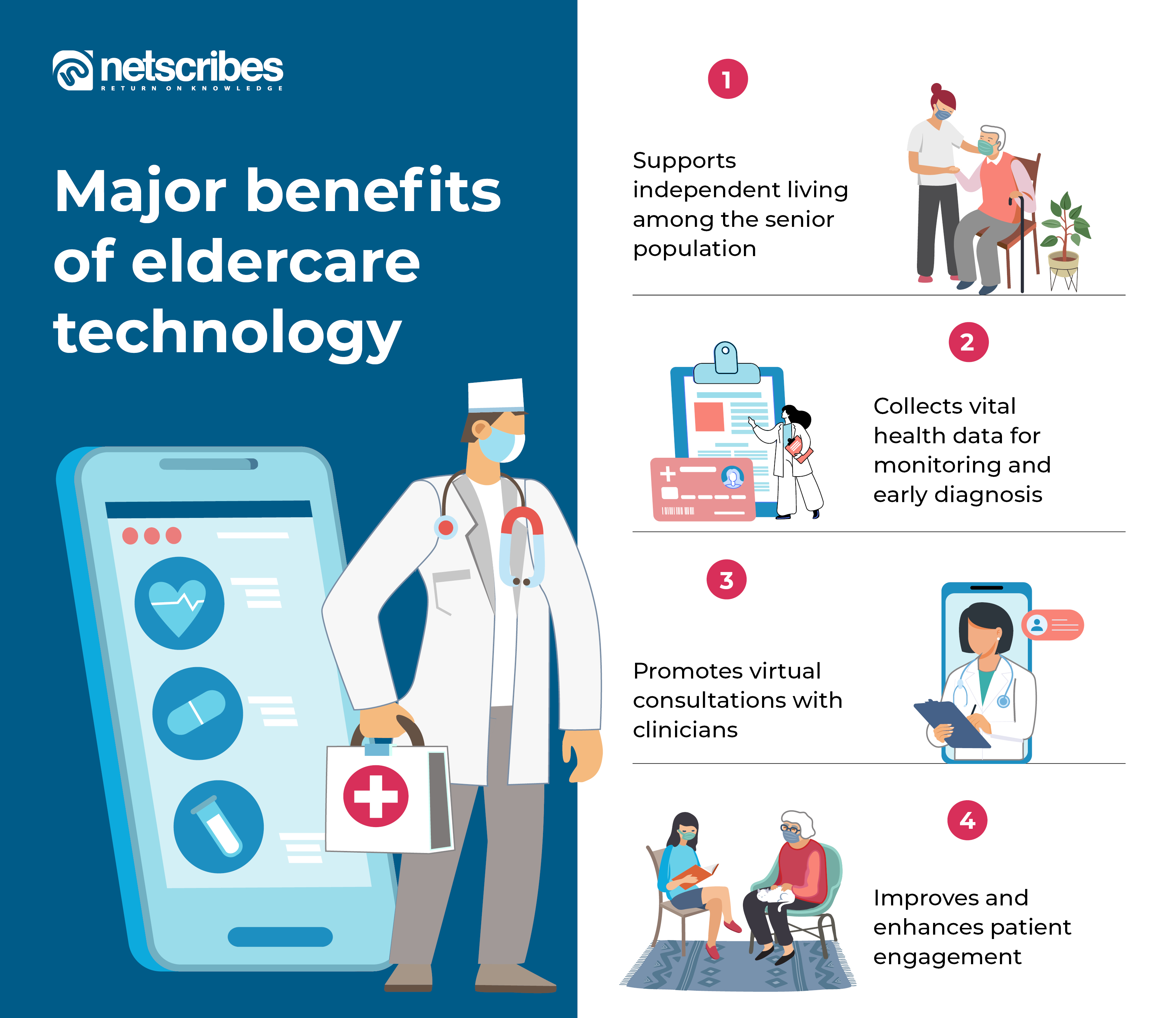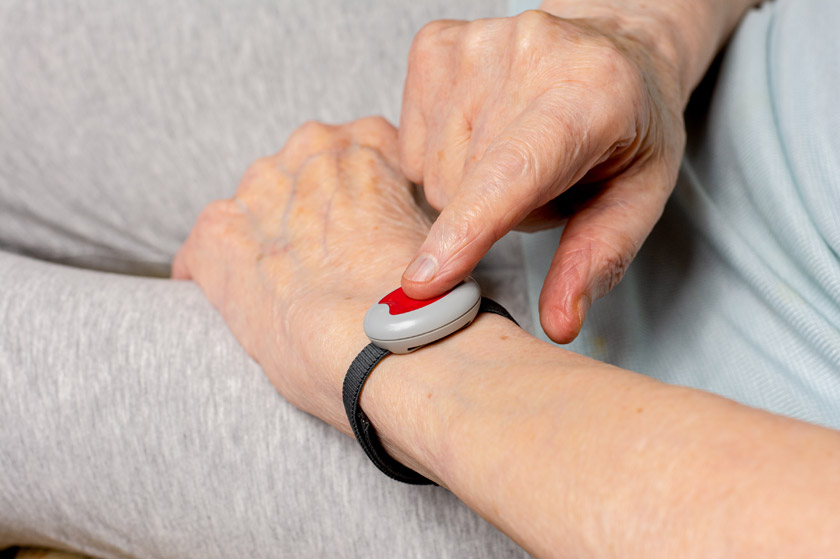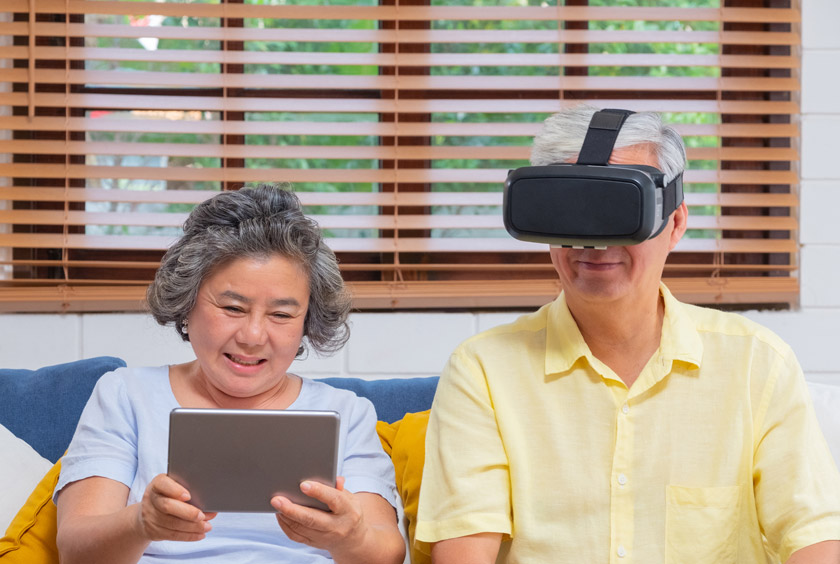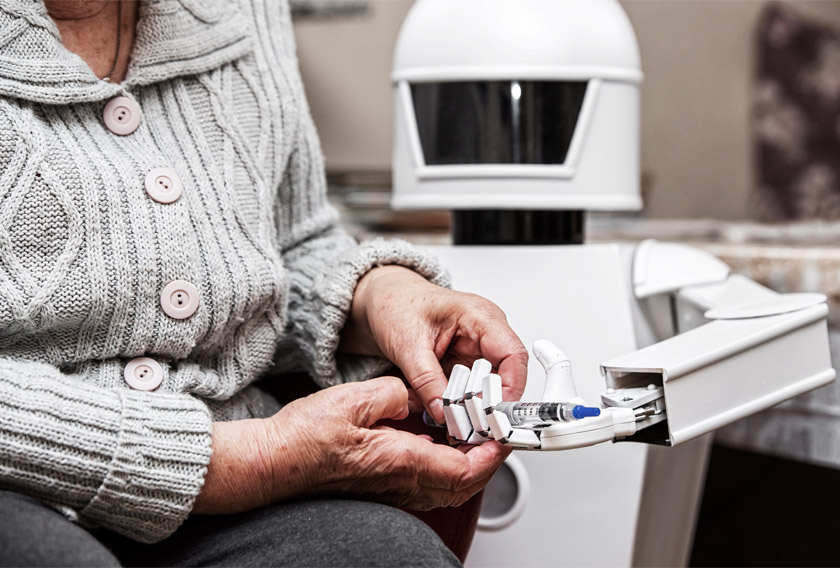Using smart technology to revolutionize eldercare
COVID-19 has upended almost every segment of the global healthcare industry, but nowhere are the tectonic shifts more visible than in eldercare. Overcrowded nursing homes and assisted living institutions have become ground zero for the deadly pandemic. Studies show that such institutions are responsible for about half of all COVID-19 fatalities in Europe, and more than 40% of them in the US. Although the pandemic is over, the concern for the well-being of the elderly population will persist. America is aging at an unprecedented rate, with seniors soon set to outnumber children for the first time in the country’s history. Fortunately, eldercare technology advances have the capability of addressing some of this industry’s most pressing issues and assisting the senior population in navigating care in the new normal and beyond.
The short end of the stick: Major challenges affecting eldercare
While the elderly population has been on the rise, the number of nursing facilities has been decreasing. For instance, the overall number of nursing facilities in the US declined by 9% between 2000 and 2009, according to CNBC. In 2014, there were 15,640 nursing facilities with a total of 1.7M licensed beds serving a senior population of more than 45M.
Another aspect of this issue is the shortage of trained caregivers for the elderly. Katie Smith Sloan, CEO of Leading Age, which represents nonprofit aging service providers, says that the caregiver workforce shortage is a major problem across the US. Millions of elderly people are unable to obtain proper affordable care and services that they require.
Not only are there fewer workers entering the industry, but many of those already there are leaving. Every year, over half of all direct care providers leave the industry. Elderly people who benefit from having familiar caregivers attend to them may undergo dozens of caregiver changes in a single year. Experts suggest that unless immediate action is taken, this shortage of caregivers is likely to exacerbate.
Smart tech to the rescue
With the growing challenges facing the eldercare sector, industry players in this field are increasingly utilizing smart technologies. As per a report by the Consumer Technology Association, the active aging market in the US — which encompasses safety and smart-living eldercare technology, health, and remote care, and wellness and fitness technologies for the elderly — is predicted to surpass USD 30 billion by 2022.
Over the last few years, a slew of so-called “age tech” companies have sprung up, intending to manage the care of the elderly, particularly those with cognitive decline. Their solutions are now making their way into home care, assisted living, and nursing homes.
“We’re already seeing some really interesting ways that technology is being utilized to support people as they age,” said Ben Jonash, author of Deloitte Center for Health Solutions’ The Future of Aging. Other experts believe that the larger demographic trends will fuel significant development in these types of enterprises in the coming years.

Four smart tech devices that are transforming eldercare
The eldercare-giving community has embraced digital innovation, and seniors themselves are increasingly utilizing technology. According to a report by the American Association of Retired Persons (AARP), 94% of individuals over the age of 50 use technology to stay in touch with loved ones, and 80% of people aged 50 to 64 own and use mobile phones.
To help you get a sense of how technology is affecting the eldercare landscape, here are five examples of smart devices to keep an eye on.
1. Automatic pill dispensers
The majority of elderly people consume an astounding number of prescription drugs for a variety of health concerns. Taking drugs at the incorrect time, unintentionally doubling doses, or forgetting about them can all be disastrous. Medication management can be made considerably easier for seniors and caregivers alike with the help of high-tech pill dispensers.
These devices can be set to alert a senior and deliver the appropriate meds in the correct dosages at the correct intervals. All a caregiver needs to do is feed the pills into the gadget and configure the schedule. Some intelligent pill organizers can even communicate with PCs and mobile phones.

For example, Phillips has introduced the subscription-based Lifeline Medication Dispensing Service. Unlike many other pill dispensers, Phillips Lifeline does not require elders or caregivers to configure it. Once the drugs are put in the dispenser, and the medication schedule is programmed into the device, the system takes care of the rest. When the patient is alerted, all he or she has to do is click a button and take the medicine that is administered. If they fail to take their medications at any moment, Phillips will contact their caregiver to check in on the issue.
2. Medical alert systems
Personal emergency response systems, such as “fall buttons,” can be immensely beneficial to both seniors and caregivers. These buttons are typically worn as a bracelet, necklace, or as clip-on and are simple to use. In the event of an accident or medical emergency, an elderly person can simply press their wearable button to contact a dispatcher, who can then contact the police, fire department, or paramedics for assistance. These devices often also include microchips with the option of GPS tracking, which can further ensure their safety.

For instance, VitalTech, a cloud-based platform, has launched VitalBand, an emergency voice call-out and fall-detection watch that offers a more discreet way of monitoring for falls while analyzing vital signs such as heart and respiratory rate, oxygen saturation, physical activity, and sleep quality. It also serves as a medication reminder and tracks the location of the patient in case of emergencies.
3. Augmented reality and virtual reality (AR/VR)
Virtual and augmented reality technologies are increasingly being used by companies to develop systems that aid seniors undergoing physical therapy or post-operative care. XR therapy provider Neuro Rehab VR, for example, provides a VR experience for elderly people undergoing physical therapy after a stroke, brain injury, or spinal cord injury, or who suffer from neurodegenerative disorders.

The company tailors each workout to a patient’s individual therapeutic needs and ability by utilizing machine learning. The personalized virtual therapeutic activities track physiological and kinematic responses, documenting the patient’s development over time with scores and metrics. It’s also designed to be more engaging by making the experience more like a game.
4. Robotic assistants
Medical technology firms have developed robotic devices that can help senior citizens both in times of emergency and to meet their daily medical obligations, such as taking medications, exercising, etc., without the presence of a person. This also contributes to resolving the problem of caregiver shortages worldwide.

For instance, tech startup Intuition Robotics‘ debut product ElliQ, is a robot system that uses proactive cognitive artificial intelligence to initiate a conversation to help elders stay in touch with relatives or loved ones, participate in healthy behaviors, such as reminders to take any medication, and stay in touch with the outside world.
The way forward
Studies reveal that senior citizens across the globe are expected to spend about USD 84 billion each year on technology-based products by 2030. That said, eldercare is no longer only about adopting smart technology; it is also about innovation, and entrepreneurs in the tech business need to be aware of these changes and trends because opportunities abound.
Netscribes helps businesses in healthcare technology stay on top of market trends and make informed decisions through holistic and tailored industry insights. To know more about how we can help you, contact us today.


